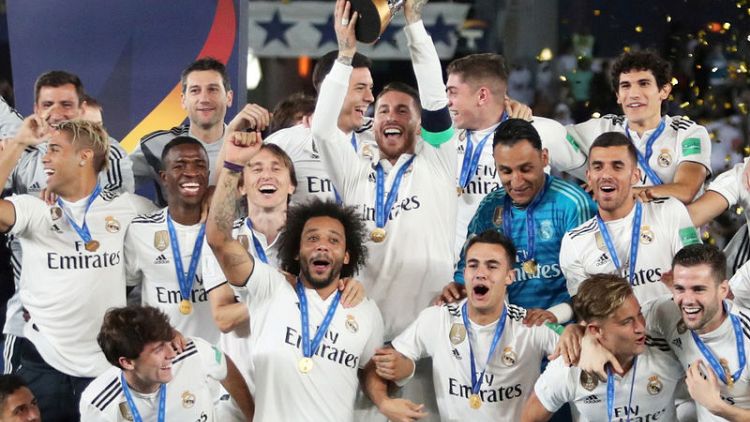By Simon Evans
(Reuters) - FIFA's Club World Cup gets underway on Wednesday with hosts Qatar facing a major test of the country's ability to deal with an influx of foreign fans.
European champions Liverpool and South America's top side Flamengo are the favourites to feature in the final at Doha's Khalifa stadium on Dec. 21.
But for Qatar, which hosts the World Cup finals in November-December 2022, this is the biggest soccer event it has staged.
Organisers have already had to make one late change to their plans with Saturday's decision not to host matches at the Education City stadium.
The venue was due to host a semi-final involving Liverpool on Dec. 18, the third-place playoff and the final. The Khalifa International Stadium will now host those three matches.
Organisers said the construction of the stadium was complete and the venue was operational but the necessary certification processes took longer than expected and the stadium was unable to host test events at full capacity prior to the event.
In a sign of the soccer tournaments bringing some change to Qatar, where the sale of alcohol is restricted to hotels, beer will be available at the official Doha Sports Park fan-zone, although not at the stadiums.
On the field, Liverpool, runaway Premier League leaders this season, are the favourites but Flamengo, winners of the Copa Libertadores, will be strong challengers.
Their Portuguese coach Jorge Jesus has made a huge impact at the Rio club, bringing a European style high-pressing game to the Brazilian league.
The opening game sees Qatari team Al Sadd take on Hienghene Sport from New Caledonia, the representatives of the Oceania confederation.
The winners will earn a clash with Mexico's Monterrey while the other second round game sees Al-Hilal of Saudi Arabia take on Tunisian club Esperance.
Liverpool and Flamengo join at the semi-final stage, kept apart to provide a strong chance of a clash between the two giants in the final.
That would be a repeat of the 1981 Intercontinental Cup final, the forerunner of this tournament, when a Zico-inspired Flamengo ran out 3-0 winners in Tokyo.
(Reporting by Simon Evans; Editing by Ken Ferris)
